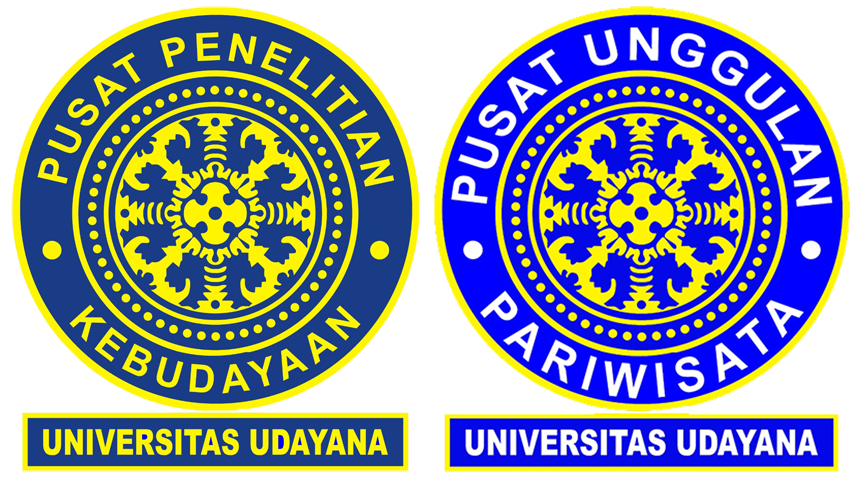Tantric Elements in Balinese Hindu Rituals
Abstract
Ritual forms an integral part of Balinese life; however, most Balinese do not realize that the ritual they practice is a blend of Vedic and Tantric elements expressed in local culture. This research aims to highlight the Tantric aspects of Balinese religion, which are usually mislabeled as mere Vedic rituals. A qualitative methodology was employed to analyze textual traditions and ritual practices. Data was collected, categorized, and analyzed to address the main elements of Tantray?na worship and how they are present in Balinese ones. Ubiquitous ritual elements such as ma??ala, yantra, pañca mak?ra, ak?ara and scales based on the human body are from the Tantra tradition. This article explores these individually, along with the generic structure of Balinese Hindu rituals.
Downloads
References
Bhuwana Kosa (transliteration). 1988. IHD Denpasar, Library Denpasar (unpublished).
Davis, R.H. (2000). Worshiping Siva in Medieval India: Ritual in an Oscillating Universe.Motilal Banarsidass.
Gupta, S, D. J. Hoens and Goudriaan, T. (1979). Hindu Tantrism. E.J. Brill.
Hatley, S. (2020). “Tantra (Overview)”: Encyclopedia of Indian Religions. Hinduism and Tribal Religions. pp.1-21.
Hooykaas, C. (1966). Surya Sevana: The Way to God of a Balinese Saiva Priest. N.V. Noord-Hollandshe uitgevers Maatschappij.
Hornbacher, A. 2016. “The Body of Letters: Balinese Aksara as an Intersection between Script, Power, and Knowledge” in The Materiality and Efficacy of Balinese Letters, Fox, R and Annete Hornbacher (eds), Brill, pp.70-99.
Jones, C.A and J.D. Ryan. (2007), Encyclopedia of Hinduism, Infobase Publishing.
Karja, I W. and R. Fieldman (2024). “The Ancient Tantric in Balinese Contemporary Art” in Jurnal Kajian Bali, Vol. 14, No. 2, Oktober 2024, pp. 324-348. doi: https://doi.org/10.24843/JKB.2024.v14.i02.p02.
Keniten, I.P.G.W. (2021). Siwa Siddhanta Bali: Sebuah Identitas Kehinduan Warisan Nusantara. Paramita.
Kiss, Csaba (2014). “On yantras in Early Śaiva Tantras” in Cracow Indological Studies, Vol. XVI (2014).
Nala, N. (2006). Aksara Bali dalam Usada. Paramita.
Picard, M. (2012). “What’s in a Name? An Enquiry about the Interpretation of Agama Hindu as “Hinduism” in Jurnal Kajian Bali, Vol. 2. Number 2, 2012. pp-113-140. https://ojs.unud.ac.id/index.php/kajianbali/search/search
Pranjanananda, P. (2006) Jnana Sankalini Tantra. Motilal Banarsidass,
Rao, S.K. Ramachandra. (1988). The Yantras. Sri Satguru Publications.
Reicle, N. (2010). Bali: Art, Ritual, and Performance. Asian Art Museum.
Sandika, K. (2019). Tantra (Ilmu Kuno Nusantara). Javanica.
Sartini, N. W. (2017). “Makna Simbolik Bahasa Ritual Pertanian Masyarakat Bali” dalam Jurnal Kajian Bali, Vol.07 No. 07, 2017. doi: https://doi.org/10.24843/JKB.2017.v07.i02.p06
Stephen, M. (2014). “Dasaksara and Yoga in Bali” in The Journal of Hindu Studies, 7 July 2014. https://academic.cup.com//jhs/article-abstract/7/2/179/2188755.
Stephen, M. (2015). “Sūrya-Sevana: A Balinese Tantric Practice”, Archipel
Études interdisciplinaries sur le monde insulindien, 89 | 2015, pp. 95-124. https://doi.org/10.4000/archipel.492
Stephenson, J.B. (2023). “Ornament of Reality: Language Ideology in a Tantric ´Sakta Text” in Religions 14: 456. https://doi.org/10.3390/rel14040456
Suamba, I. B. P. (2009). Siwa-Buddha di Indonesia: Ajaran dan Perkembangannya, Program Magister Ilmu Agama dan Kebudayaan bekerja sama dengan Penerbit Widya Dharma.
Suamba, I. B. P. (2016). Javanese Saivism A Philosophical Study of Tattva Texts. B.R.Publishing House.
Suamba I. B. P. (2019) “Tantrayana di Bali: Aksara Mysticism dan Etika di dalam Teks Tutur” dalam Tuhan dan Alam (Membaca Ulang Pantheisme-Tantrayana dalam Kakawin dan Manuskrip Kuno Nusantara), Andrea Acri (eds.), BWCF Society.
Sura, I Gde (ed.). (2005). Roga Sanghara Bhui, Wasista Tattwa, Dewa Tattwa. Dinas Kebudayaan Provinsi Bali.
Thakur, M. K. (2001). The Tantras: An Introduction Outline. Worldview Publications.
Utama, I. W. B. (2019). Lokalisasi Tantra di Bali. PT. Japa Widya Duta.
Wenta, A. (2023). “The Siddha with a Thousand Faces: Non-Tantric and Tantric Elements in the Construction of the Buddhist Siddha in*Jñanakara’s Commentary to the Introduction to the [Path of] Mantra” in Religions 2023, 14(6), 792; https://www.mdpi.com/2077-1444/14/6/792 https://doi.org/10.3390/rel14060792.
Woodroffe, J. (2008). Introduction to Tantra Sastra. Reprint, Ganesh and Company.
Yudiantara, P. (2017). Ilmu Tantra Bali. Bali Wisdom.

This work is licensed under a Creative Commons Attribution 4.0 International License.



















